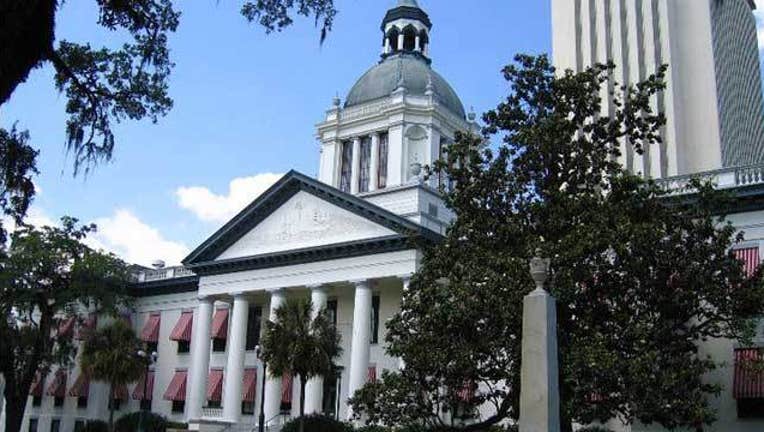State appeals sanctuary cities ruling

Florida State Capitol Building
TALLAHASSEE - The fight over a Florida law that banned so-called sanctuary cities is headed to a federal appeals court.
Attorney General Ashley Moody’s office filed a notice Tuesday that was a first step in the state appealing a federal district judge’s ruling that struck down key parts of the controversial immigration law.
As is common, the one-paragraph notice did not detail arguments the state will make at the Atlanta-based 11th Circuit Court of Appeals.
The law, which the Republican-controlled Legislature passed in 2019 after a fierce debate, was a priority of Gov. Ron DeSantis and was touted as a way to improve safety in communities. But opponents contended that the measure was unconstitutional and designed more to pander to Republican base voters than to solve an actual problem.
In a 110-page ruling issued Sept. 21, U.S. District Judge Beth Bloom said two major parts of the law violated constitutional equal-protection rights and issued a permanent injunction against them.
One of those parts banned state and local agencies from having "sanctuary" policies that would prevent law-enforcement officials from cooperating with federal immigration-enforcement efforts.
The other part required law-enforcement agencies to use "best efforts" to support enforcement of federal immigration laws.
Bloom, who is based in South Florida, delved extensively into the Legislature’s development of the law (SB 168) and pointed to what she described as an "immigrant threat narrative" that helped lead to it.
"Based on the evidence presented, the court finds that plaintiffs have proven by a preponderance of the evidence that SB 168 has discriminatory or disparate effects on racial and ethnic minorities, and these discriminatory effects were both foreseeable and known to the Legislature at the time of SB 168’s enactment," she wrote.
Lawmakers passed the measure in May 2019 along nearly straight party lines, before DeSantis signed it. Several groups, such as the Florida Immigrant Coalition and the Farmworker Association of Florida, filed the lawsuit in July 2019.
Bloom dismissed parts of the case in 2019 but allowed other parts to move forward. She held a six-day trial in January before taking eight months to issue a ruling.
The legislative debate over the measure was highly emotional and came as then-President Donald Trump made a priority of cracking down on undocumented immigrants. Also, DeSantis had promised during his 2018 gubernatorial campaign to ban sanctuary cities.
"This is about the rule of law," DeSantis said as he signed the bill. "It’s also about public safety."
But after Bloom’s ruling last month, the coalition that filed the challenge issued a joint statement describing the law as "racist."
"This law was clearly developed to encourage racial profiling, civil rights violations, isolation of immigrant communities and unjust deportations," the statement said. "It did more harm for the causes of public safety than good."

